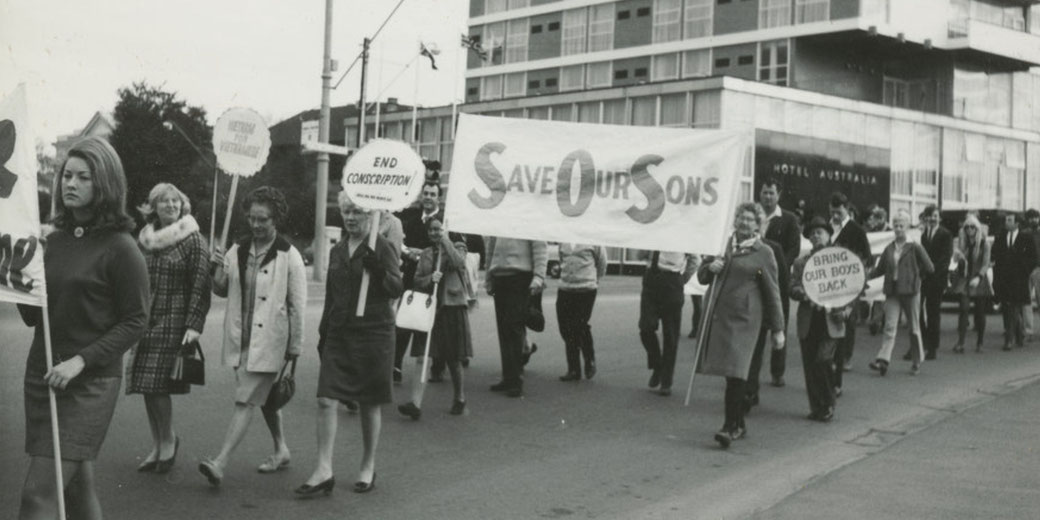How the 'Save Our Sons' movement changed Australia's course in the Vietnam War

The 'Save Our Sons' movement, a vocal and highly significant campaign in the 1960s and early 1970s, marked a pivotal period in Australia's history.
This movement, which saw Australian women rise en masse to protest against the nation's involvement in the Vietnam War, powerfully demonstrated the power of civilian dissent and galvanized change at the highest levels of government.
Origins of the 'Save Our Sons' Movement
In the mid-1960s, Australia, along with other Western countries, became involved in the Vietnam War, a conflict waged against the communist forces of North Vietnam by the United States and its allies.
Prime Minister Robert Menzies made the controversial decision to send conscripted soldiers to fight in Vietnam, a move that marked Australia's first peacetime conscription.
The 'Save Our Sons' (SOS) movement arose in response to this. Initially founded in Sydney in 1965 by five women - Jean McLean, Irene Miller, Jo Maclaine-Cross, Frances James, and Kathleen George - the SOS aimed to abolish conscription, which they saw as unethical, unjust, and an unnecessary loss of young lives.
The Growth and Impact of the 'Save Our Sons' Movement
The movement quickly spread across Australia, with branches in Victoria, Queensland, South Australia, Western Australia, and Tasmania.
These women came from diverse backgrounds and political beliefs but were united in their opposition to conscription and the Vietnam War.
The 'Save Our Sons' movement employed a variety of protest techniques, from distributing leaflets and petitions to conducting silent vigils, marches, and public speeches.
They also provided legal and financial assistance to those refusing conscription. Their efforts drew national and international attention to the issue, making it a central topic in the Australian socio-political discourse.
In April 1971, SOS members in Victoria were famously arrested for distributing pamphlets containing information on how to avoid conscription at a Melbourne draft center.
The subsequent trial, known as the 'Fairlea Five' trial, caused a public outcry, further galvanizing opposition to the war and drawing significant media attention to the cause.
Effects and Legacy of the 'Save Our Sons' Movement
The SOS movement was instrumental in mobilizing public opinion against the Vietnam War and conscription in Australia.
Their efforts, along with those of other anti-war organizations, contributed to a shift in public opinion and policy.
The Labor Party, led by Gough Whitlam, who opposed conscription, won the 1972 election, marking the end of the Liberal-Country coalition government that had introduced and supported conscription.
Whitlam promptly abolished conscription and withdrew Australian troops from Vietnam.
The 'Save Our Sons' movement not only played a significant role in Australia's departure from the Vietnam War but also left a lasting impact on Australian society.
It marked an important moment for women's activism in Australia and contributed to the growth of the feminist movement in the country.
Furthermore, it helped establish a tradition of public dissent and civilian involvement in issues of national importance.
Today, the 'Save Our Sons' movement is remembered as a courageous and determined effort by everyday Australians to challenge government policies they believed to be unjust.
The movement remains a poignant reminder of the power of peaceful protest and civic engagement in shaping a nation's history.

What do you need help with?
Download ready-to-use digital learning resources
Copyright © History Skills 2014-2025.
Contact via email
With the exception of links to external sites, some historical sources and extracts from specific publications, all content on this website is copyrighted by History Skills. This content may not be copied, republished or redistributed without written permission from the website creator. Please use the Contact page to obtain relevant permission.





